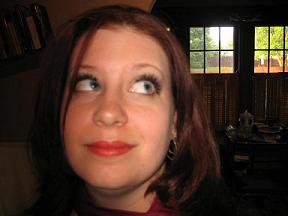Blossoms of Fire

Synopsis
This is an hour long documentary about the Mexican women of Juchitán located in Oaxaca, Mexico; a primarily matriarchal society, depicting their history, current issues, and social hierarchy. (NR, 2000)
Observations
I was very frustrated with the tone that documentarians Maureen Gosling and Ellen Osbourne chose to take for this film. What could have been a superb use of folk music to weave a fascinating ethno-musicological portrait of these indigenous people turned into a soundtrack for a live-action, brightly-colored Disney-esque tribute to a sunny utopia of big happy brown women. Over and over I was hit in the head with the heavy-handedness of the filmmakers idyllic representation. The sentimental tone of the movie idealized the primarily rural lives of the people of Oaxaca. The happy women selling their wares in the local town square; happy women dancing in giant flowery skirts; happy women planning fiestas and drinking beer. I was annoyed by the insistence of the filmmakers that the lives this community were living were that much different than that of many other successful, rural communities. I was completely unconvinced that this community was a matriarchy. So the women take care of the money – whoo whoo! Feminists Unite! Where were the women that the DVD case proudly declares are in governmental positions? Where are women doctors, civic leaders, social activists? A vague reference was made to skilled midwives – that is hardly a phenomenon exclusive to the Juchitán.
The filmmakers’ choice to include gay and transgendered issues also bothered me. Was I to interpret that the communal tolerance of sexual diversity as somehow tied to this mythical matriarchy? Women leaders make it easier for all to coexist? The movie spends a good twenty-plus minutes listening to painted up men talking about how great it is for them to live in Oaxaca. Though I applaud the rural communities sensitivity to the differences in others, I was confused by the forced inclusion of gay and transgender issues in the documentary. That’s another movie. It was curious to see the gay/transgendered men made up with make-up (there’s even an Avon lady in the documentary) when there was a segment that specifically pointed to the fact that straight men preferred the Juchitán women without make-up. But that's another movie. Or a movie in a different direction.
This film lacks a cohesive vision. The filmmakers spent much time extolling the virtues of the matriarchy without showing it in action. I am happy for the Juchitán women; their confidence, their fortitude, their appreciation of aesthetic. But I think the filmmakers created a sentimental utopia where there was really just a community of rural people struggling to get by.
Rating:
Amazon's entry for Blossoms of Fire


0 Comments:
Post a Comment
<< Home